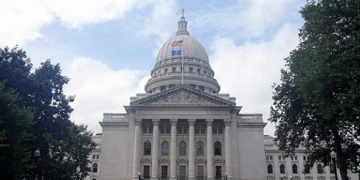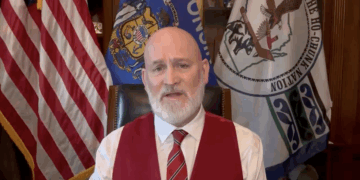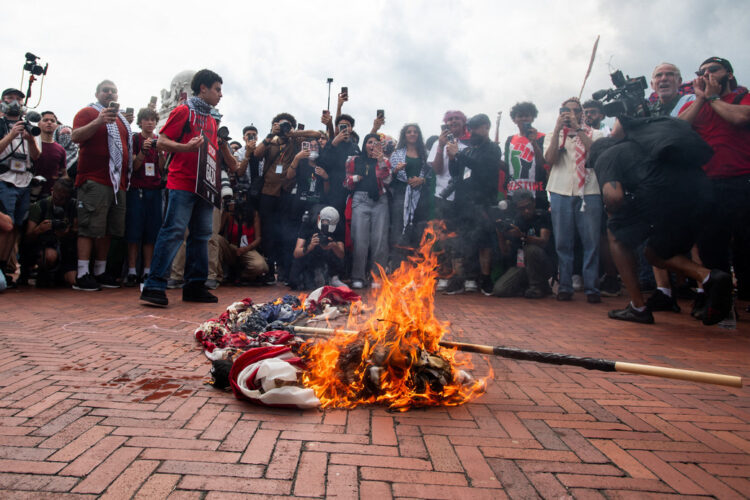During Israeli Prime Minister Benjamin Netanyahu ‘s recent visit to Washington, D.C., the city witnessed intense protests by pro-Palestinian and pro-Hamas demonstrators. These protesters defaced monuments, replaced American flags with Palestinian ones, and spray-painted “Hamas” on public property. The protests have sparked a strong response from congressional allies of Israel, with Congressional Republicans accusing the Biden administration of indirectly supporting these protests by releasing funds to Iran.
John Kirby, a spokesperson for the National Security Council, stated that the White House believes Iran has been funding and encouraging some of these protests. “We do know that Iran has been funding and encouraging some of the protest activity here in the United States,” Kirby said. However, he clarified that not all protests are influenced by Iran, indicating that there are diverse motivations among the demonstrators.
During Netanyahu’s speech to the U.S. Congress, he condemned the protesters, accusing them of aiding Iran. Thousands of demonstrators had gathered around the Capitol during his address, where some burned American flags at Union Station. Protesters took down an American flag above Union Station and hoisted the Palestinian flag in its place before burning the American flag they removed.
Adding to the controversy, the Biden-Harris administration recently renewed a sanctions waiver, allowing Iran access to billions of dollars. This move, made just last week, has raised questions about the administration’s approach to Iran, especially since the funds could potentially support actions against U.S. interests. Critics argue that this decision emboldens Iran, particularly given Iran’s support of various militant groups, including Hamas, Hezbollah, the Houthis, Shia militias in Syria and Iraq, and the Iranian Revolutionary Guards.
The release of funds to Iran has been a contentious issue, especially after a recent incident where an Iranian proxy group was involved in the death of three American soldiers. The ongoing protests and accusations of Iranian funding underscore the complex and challenging relationship between the U.S. and Iran, highlighting concerns over national security and foreign influence on domestic issues.
































